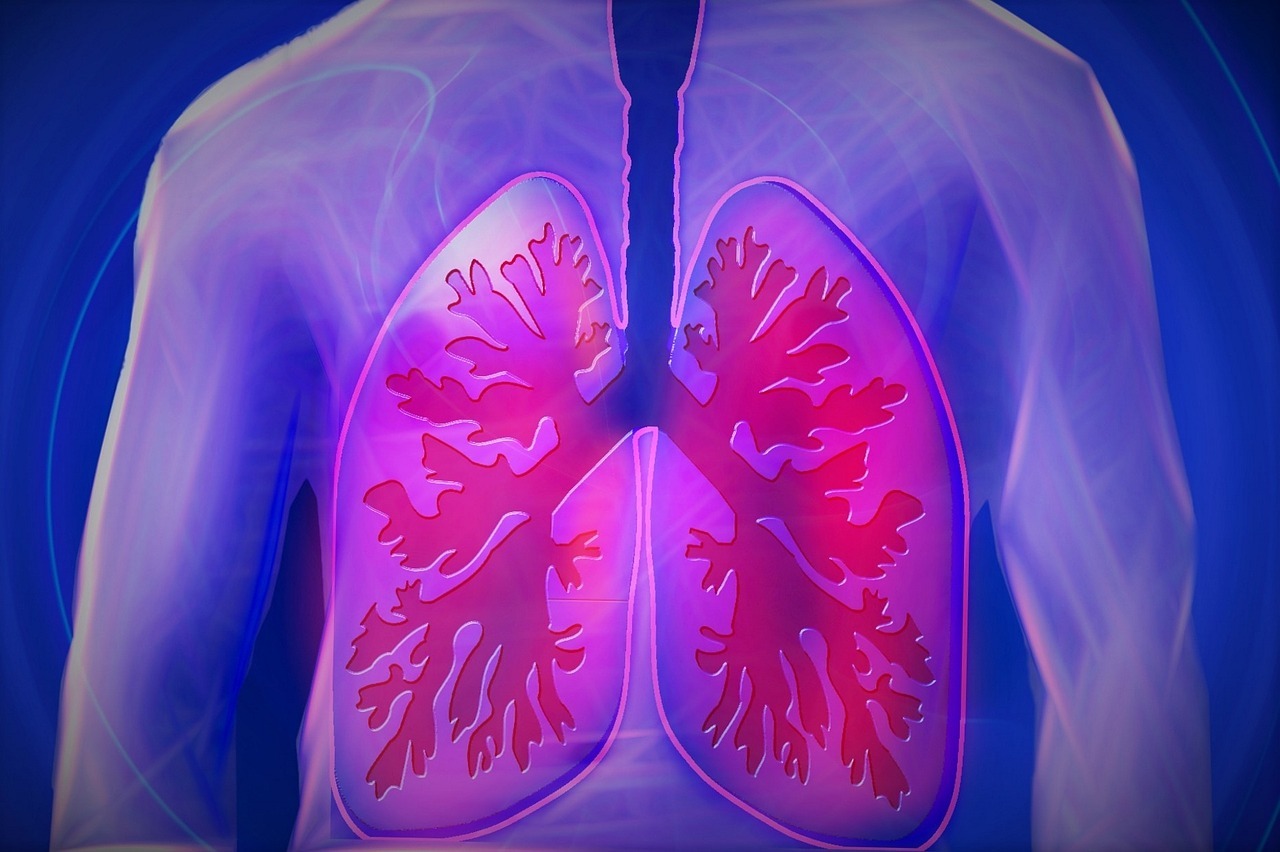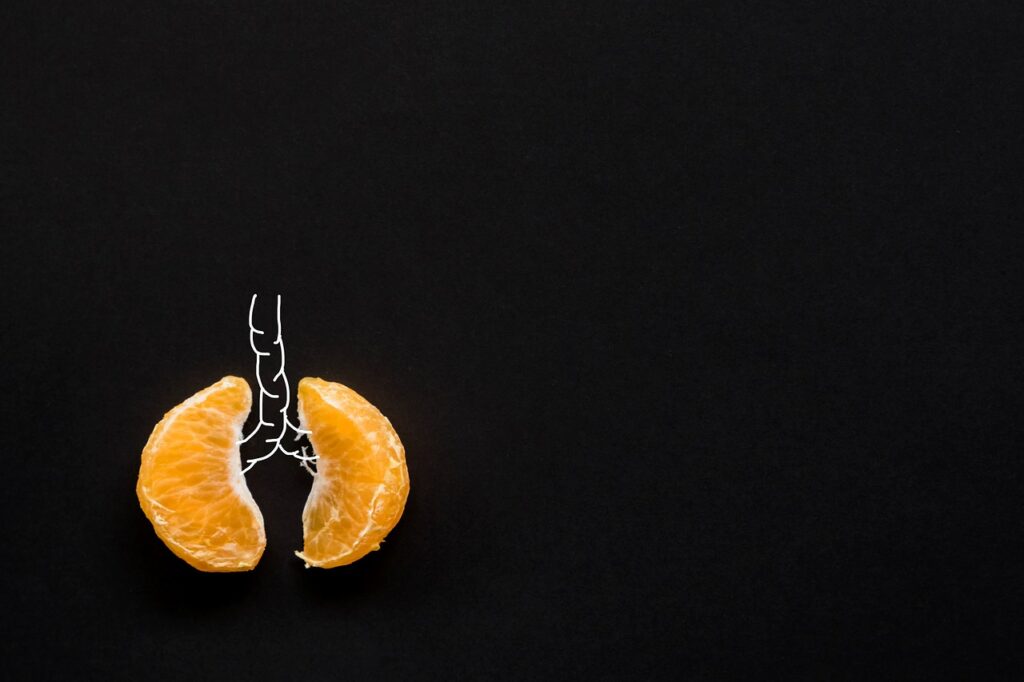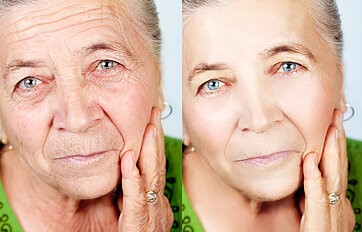What are Bibasilar crackles of Lungs? : Symptoms, Causes & Treatments

A doctor can listen to the sounds of crackles of the lungs using a stethoscope. One type of sound that can indicate a problem is called bibasilar crackles.
The sounds of the lungs can provide clues that help a doctor to diagnose an underlying condition.
Therefore, In this article, learn about the conditions & treatments that cause bibasilar crackles.
Table of contents
Bibasilar Crackles related to Lungs
Bibasilar crackles are abnormal sounds from the base of the lungs. Also, they indicate that something is interfering with airflow.
Two issues that often cause bibasilar crackles are:
- The accumulation of mucus or fluid in the lungs.
- A failure of parts of the lungs to inflate properly.
What are the Symptoms related Bibasilar crackles in Lungs
The crackles themselves are not a disease, but they can be a sign of an illness or infection. The crackles sound like brief popping when a person breathes.
Bibasilar crackles are more common during inhalation, but they can occur when a person exhales.
Doctors classify the crackles as fine or coarse, depending on
Fine crackles
Fine crackles are often soft and high-pitched.
Coarse crackles
Coarse crackles are usually louder and low-pitched, with a wet or bubbling sound.
Additional symptoms of Bibasilar crackles in lungs, depending on the underlying cause include:
- trouble breathing
- coughing
- fever
- swelling in the feet or lower legs
- fatigue
Causes of Crackles in Lungs
Many conditions can cause bibasilar crackles, and they are usually based on the heart or lungs.

Main Causes of Bibasilar crackles are
Pneumonia
Pneumonia is an infection in the lungs, which can result from a virus, bacteria, or fungus.
The infection can cause shortness of breath, fatigue, and coughing, as well as bibasilar crackles. In some cases, pneumonia can be life-threatening.
Bronchitis
Bronchitis involves inflammation of the bronchi, which are the tubes leading to the lungs. In addition, It can be acute or chronic.
Acute bronchitis often results from a virus, and it typically lasts for 3–10 days. Exposure to lung irritants, such as tobacco, is often the cause of chronic bronchitis.
Some symptoms of bronchitis include coughing, chest congestion, and fatigue.
Pulmonary fibrosis
Pulmonary fibrosis is a type of interstitial lung disease characterized by scarring of the lungs and crackles.
In most cases, the underlying cause is unknown. However, pulmonary fibrosis can result from exposure to hazardous materials, such as radiation, animal droppings, and asbestos.
Symptoms include a dry cough, shortness of breath, and unexplained weight loss.
Heart failure
Heart failure occurs when the heart is too weak to pump blood efficiently to the rest of the body.
If the heart is not working correctly, the blood does not exit the lungs as quickly as it should. Therefore, this can cause fluid to build up, and it can pool in the lungs.
Heart failure can affect both children and adults. Heart failure affects approximately 5.7 million people in the U.S.
Finally, beyond bibasilar crackles, symptoms may include swelling in the abdomen, coughing, and shortness of breath.
Pulmonary edema
Pulmonary edema involves a buildup of fluid in the alveoli, which are small air sacs in the lungs.
Additionally, the possible causes of pulmonary edema include:
- heart damage or dysfunction
- damage to the pulmonary capillaries
- trauma to the chest
- infection
- inhalation of a toxic substance
Pulmonary edema can result from altitude sickness, which occurs when a person unaccustomed to altitudes ascends to 2,500 meters or higher.
In addition to bibasilar crackles of lungs, symptoms of pulmonary edema include coughing, trouble breathing, blue-tinged lips, and spitting up pink, frothy mucus.
Treatment for Crackles of Lungs
Treatment for bibasilar crackles will depend on the underlying cause. Moreover, this crackles may fade or disappear after treatment.
However, if the cause is a chronic condition, the crackles may occur on and off for an extended period.
Treatments for common causes of bibasilar crackles are
Medication for Lungs Crackles
A doctor may prescribe diuretics for a person with heart failure. Furthermore, Diuretics are medications developed to reduce levels of fluid in the lungs.
A person may require antibiotics if the crackles have resulted from bacterial pneumonia or bronchitis.
Doctors may also prescribe steroids to decrease inflammation in the lungs.
Oxygen therapy
Many causes of bibasilar crackles lead to shortness of breath. Moreover, oxygen therapy can help to make breathing easier.
Lifestyle changes can cure/Prevent Crackles of lungs
In some instances, crackles result from chronic lung disease.
Making certain lifestyle changes, such as stopping smoking, may help to treat the underlying condition and prevent long-term complications.
Takeaway
Anyone with symptoms of bibasilar crackles should speak to a doctor as soon as possible.
Also, crackles are abnormal sounds, and they usually indicate that an underlying condition requires treatment.
Bibasilar crackles can result from a severe lung problem. Therefore, prompt diagnosis and treatment may help to prevent long-term complications.
Hence, anyone who experiences bibasilar crackles and shortness of breath, chest pain, or blood-tinged mucus should seek immediate medical attention.
Products That We Suggest for you
Vitapost – Supports Healthy Lungs & Respiratory System
Support healthy lungs and a healthy respiratory system. In addition, VitaPost Lung Support features Vitamins C and K₂, botanical antioxidant extracts like quercetin and pine bark, and 250mg of Cordyceps extract.
To know more and purchase, Click Here








Comment to this Article
Comments that encourage respectful conversation are welcomed at AGP Health n Beauty. Stay on subject, please. Comments that are aggressively promotional of goods or services or that include personal attacks, vulgar language, or other forms of abuse will be deleted. Which remarks break our comment policy will be decided at our discretion. (Anonymous comments are accepted; just leave out your name in the comment box. Although necessary, your email address won't be posted with your comment.)